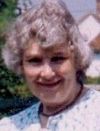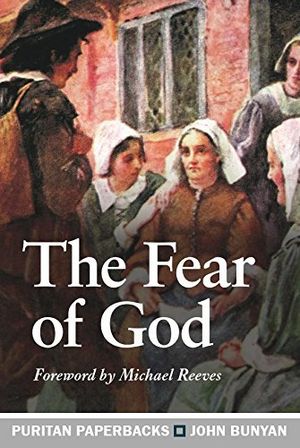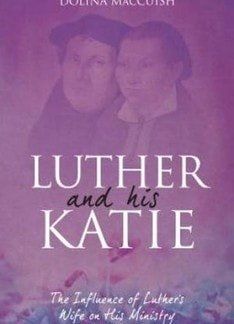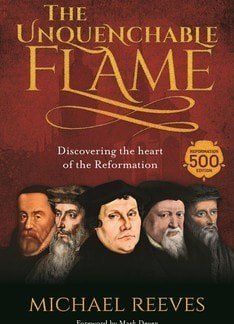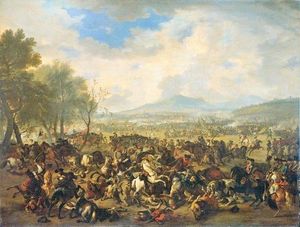If you are sometimes tempted to think that ‘Old England’ has gone for ever – that few quiet corners of the country remain to tell the story of past generations – then you must visit the sleepy village of Chrishall in Essex on a sunny morning in early summer.
Thatched cottages stand along its winding lanes; a small stream, shielded from the sunlight by tall bulrushes and low-growing trees, meanders slowly through the village. May trees blossom profusely in the hedgerows; few man-made sounds intrude. All seems idyllic.
But there is a far better reason to turn off the M11 at Junction 9 and make your way to Chrishall. For in 1904-1905 an amazing work took place in this village – quite independent of the Welsh Revival of the same date, yet no less a work of God.
Gravestones
Nor was this revival a short-lived burst of religious fervour, as witnessed by the fact that the Methodist Chapel still holds regular services each Sunday. If you wander around the small burial ground behind the chapel you will find further testimony from the words on the gravestones – evidence that the ‘children of the revival’ lived their lives in submission to God and in his service.
‘Thou art with Christ and Christ with me. In Christ united still are we’, wrote Esther Brand when her 53-year-old husband died in 1947. Charles Clarke, aged 30 when the revival broke out, lived until almost 80, ‘A life in the Master’s service’.
A rough boulder marks the last resting place of another couple who ‘Walked with the Lord’, while grieving parents whose youngest son was killed in action in France in 1916 could humbly inscribe his stone, ‘Thy way not mine, O Lord’.
What is the story that lies behind this little-known work of God? It can best be told through the life and experiences of one man, Sidney Flack.
Builder’s labourer
The old graveyard contains the remains of a number of people by the name of ‘Flack’, for Sidney was a son of one of the villagers of Chrishall. Born in 1887, the boy received little education, leaving school unable to read and write. From the age of 14, Sidney was employed as a builder’s labourer.
Life for the villagers centred on the ‘Chapel’, a small whitewashed Primitive Methodist building erected in 1862 and enlarged nine years later. At the time, the Primitive Methodists used travelling ‘gospel caravans’ in which evangelists would live for weeks at a time as their faithful horse transported them from one village to another.
Stopping in a village, the evangelists would announce a series of special meetings with gospel preaching each day for two or three weeks, before setting off for some other village.
Inner distress
Looking back to his boyhood days, Sidney Flack recalled that the travelling evangelists would draw up in Chrishall each winter and preach earnestly and faithfully but with little apparent success. For six or seven years it was the same story. Each year as they packed up their caravan they would leave feeling that their endeavours had been in vain.
But in November 1904 – the very time the presence and power of God first began to be felt in Wales – something remarkable took place. A young man of 16 was converted, not through the mission but in a sovereign and unexpected work of the Spirit of God.
Whether Sidney Flack had been awakened to his spiritual need during the missioners’ previous visit, we cannot tell. But what is certain is that for many months before that November he had been under deep conviction of sin.
So troubled was Sidney about his sins that he could scarcely sleep. Night after night he would creep out of his bed and kneel down and plead with God for forgiveness and mercy. Being illiterate, he could not read the Scriptures or any other literature, and it would appear that he felt unable to tell anyone of his inner distress.
Sins forgiven
As his spiritual struggle intensified during the summer of 1904, Sidney realised that if he made an open profession of faith in Christ he might well become the laughing stock of his companions – and this he could not face.
No, he decided, he would wait until he visited Bridlington in November for a short holiday before settling the issue. For, as he later confessed, ‘The devil whispered in my ear, “Wait until you go on holiday. You need not say anything about it then”.’
In Bridlington, far from his village home that November, Sidney set off with others for the Primitive Methodist chapel on Sunday morning. But on the way they came across a Salvation Army band marching to their place of worship.
Sidney felt a strange inner compulsion to follow the band, and soon found himself listening earnestly to the message preached in the Army Hall. As he listened he began to tremble. His sins rose up before him in dreadful array, and by the end of the service he was so agitated that a Salvation Army man had to help him put on his coat.
Shortly after this, however, his anguish turned to an exultation of spirit as Sidney knew at last that his sins were forgiven him for Christ’s sake. He could scarcely contain the joy he now felt.
Gone were his fears of the opinions of others. He returned to Chrishall speaking freely of his faith and urging his friends and all he met to seek and find that same forgiveness.
Abundant power
From November 1904 until the Spring of 1905 – dates that equate with those when the presence and power of God was abundantly manifested in Wales – an amazing work of the Spirit of God took place in Chrishall and the surrounding area.
During this time more than forty conversions were recorded, mainly among the younger people – an astonishing work of God in such a small community. It transformed village life, leaving its traces etched on the gravestones one hundred years later. As in any revival, however, there were one or two whose professions of faith proved to be short-lived.
In all likelihood these conversions coincided with the annual winter mission of the caravan evangelists, and were also the fruit of the regular preaching at the chapel. Equally significant was the fact that this unique work of God’s Spirit stopped almost as dramatically as it had started. After the end of 1905 there were few if any further conversions in the village.
Used by God
Sidney Flack himself was used by God in an extraordinary way during this time. Aflame with zeal and concern for others, he spoke to all who would listen and to many who would not, urging them to seek the mercy of God while opportunity remained.
On one occasion the earnest young man saw a ploughboy hard at work in one of the fields near Chrishall. Up and down the field went Sidney Pledger, guiding his horse and plough carefully along the furrow.
Up and down the field beside him went Sidney Flack, pleading with him all the time to consider his spiritual destiny. At last the kindly young Christian placed one hand on the ploughboy’s shoulder and begged him to delay no longer in seeking God. A week later Sidney Pledger was converted.
He confessed that throughout the week he had been unable to shake off the weight of Flack’s hand upon his shoulder until he too knew his sins were forgiven.
The converts of the revival at Chrishall were organised into class meetings, one for men another for women, as was the common practice among both Wesleyan and Primitive Methodists. Some thirty other men met in Sidney Flack’s class, and each was encouraged to speak of what God had done for his soul – not just in conversion but during the days of the week that had just passed.
Assured of complete confidentiality, problems were shared, sins confessed, and relapses grieved and prayed over. Thus, under the guidance of an older Christian, these young men and women of the revival were stimulated to continue in faithfulness and service to God.
Colporteur
Sidney Flack himself consecrated the rest of his long life to the service of Christ. Even as an illiterate young man he began to preach the gospel in the villages around Chrishall, taking with him a church officer to read the Scriptures.
But when he met someone who agreed to teach him to read, Sidney seized the opportunity and before long became an avid reader. This in turn led him into his life work as a colporteur with the Christian Colportage Association.
With his bicycle basket full of Christian literature, Sidney rode the country lanes both in Essex and far further afield, selling his literature and urging those whom he met to seek after God. The late Rev. Gordon Hawkins of Wattisham, who cared for the aged evangelist in his own home for seventeen years, said, ‘The gospel meant everything to Sidney Flack’.
Sidney Flack lived until 13 September 1988, dying at almost 102 years of age. We may be sure that this earnest Christian evangelist heard his Master saying, ‘Well done, good and faithful servant. Enter into the joy of your Lord’.

